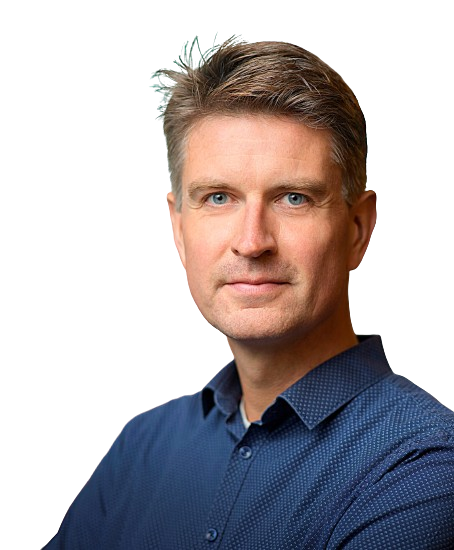|
|
|
|
|
特文特大学Wilfred G. van der Wiel教授讲述认知物质化--认知物质中的信息处理 |
|
|

直播时间:2024年3月22日(周五)20:00-21:30
直播平台:

科学网APP
https://weibo.com/l/wblive/p/show/1022:2321325014743089021233
(科学网微博直播间链接)

科学网微博

科学网视频号
北京时间2024年3月22日晚八点,iCANX Talks 第178期邀请到了特文特大学Wilfred G. van der Wiel教授进行分享!此外,埃因霍温科技大学Yoeri van de Burgt,格罗宁根大学Herbert Jaeger,奈梅亨拉德堡德大学Alexander Ako Khajetoorians ,特文特大学HansHilgenkamp,北京大学张海霞等教授担任嘉宾,特文特大学Christian Nijhuis教授担任主持人。
这将是一场汇聚顶尖学者的盛会,共同探讨前沿科技与学术挑战!更多精彩,敬请期待!
【嘉宾介绍】

Wilfred G. van der Wiel
特文特大学
Materializing Cognition – Information Processing in Cognitive Matter
【Abstract】
Throughout history, man has exploited matter to carry out tasks well beyond his biological constraints. Starting from primitive tools with functionality solely derived from shape and structure, we have moved on to responsive matter that can change its properties upon external stimulus. The next step would be adaptive matter that can change its response depending on the environment. One of the grand scientific and intellectual challenges is to make matter that can actually learn. Such matter’s behavior would not only depend on the here and now, but also on its past. It would have memory, and ultimately autonomously interact with its environment and self-regulate its action. We may call such matter ‘cognitive’ or even ‘intelligent’.
Here, we summarize our progress towards realizing such cognitive matter, making use of ‘material learning’ in disordered nanomaterial systems. By exploiting the intrinsic complexity of networks of nanoparticles or dopant sites, we realize computing primitives that can be tuned in situ to carry out tasks such as image classification or speech recognition. We argue that computing machines ‘made out of whatever physics offers’ have the potential to be extremely versatile and efficient, especially for tasks where cognitive properties such as adaptation and learning are crucial.
纵观历史,人类一直在利用物质来完成远远超出其生理限制的任务。从功能完全来自形状和结构的原始工具开始,我们已经发展到能够在外部刺激下改变自身特性的反应物质。下一步将是适应性物质,它可以根据环境改变自己的反应。科学和智力方面的一大挑战是制造出能够真正学习的物质。这种物质的行为不仅取决于此时此地,还取决于它的过去,它将拥有记忆,并最终自主与环境互动,自我调节其行为。我们可以称这种物质为“认知物质"或者可以说是"智能物质”。
在此,我们总结了利用无序纳米材料系统中的 "材料学习 "实现这种认知物质的进展。通过利用纳米粒子或掺杂位点网络的内在复杂性,我们实现了可就地调整的计算基元,以执行图像分类或语音识别等任务。我们认为:“用物理学提供的任何材料制造”的计算机器都有可能具有极高的通用性和效率,特别是在适应和学习等认知特性至关重要的任务中。
【BIOGRAPHY】
Wilfred G. van der Wiel (Gouda, 1975) is full professor of Nanoelectronics and director of the BRAINS Center for Brain-Inspired Nano Systems at the University of Twente, The Netherlands. He holds a second professorship at the Institute of Physics of the University of Münster, Germany. His research focuses on unconventional electronics for efficient information processing. Van der Wiel is a pioneer in ‘material learning’ at the nanoscale, realizing computational functionality and artificial intelligence in ‘designless’ nanomaterial substrates through principles analogous to machine learning. He is author of more than 125 journal articles receiving over 10,000 citations.
Wilfred G. van der Wiel(1975 年出生于高达)是荷兰屯特大学纳米电子学全职教授兼脑启发纳米系统 BRAINS 中心主任。他在德国明斯特大学物理研究所担任第二教授。他的研究重点是用于高效信息处理的非常规电子学。Van der Wiel 是纳米级 "材料学习 "的先驱,通过类似机器学习的原理,在 "无设计 "纳米材料基底中实现计算功能和人工智能。他发表了 125 篇期刊论文,被引用次数超过 10,000 次。
特别声明:本文转载仅仅是出于传播信息的需要,并不意味着代表本网站观点或证实其内容的真实性;如其他媒体、网站或个人从本网站转载使用,须保留本网站注明的“来源”,并自负版权等法律责任;作者如果不希望被转载或者联系转载稿费等事宜,请与我们接洽。